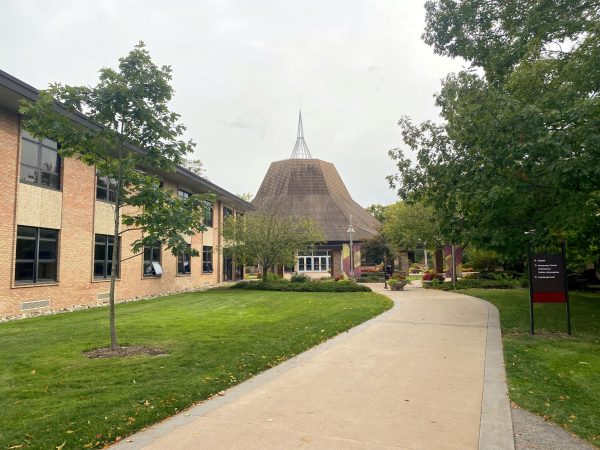God of vengeance and mercy
In the Qur’an, Allah is commonly portrayed with the two conflicting characteristics of vengeance and mercy. This was the subject of the lecture held by the religion department on Monday, March 9. Dr. Gabriel Reynolds, professor of Islamic studies and theology at Notre Dame, gave a talk entitled “God of Vengeance and Mercy: Allah in the Qur’an” which focused on Allah’s often contradictory portrayal in the Qur’an. Reynolds spoke about how these two traits can work together and how Muslims should respond to a God like this.
In an interview with Chimes, Reynolds said, “The study of Islam is a calling for all of us. In Michigan there is such a large Middle Eastern and Muslim population. They are our brothers, sisters and neighbors. We need to understand each other and have articulate answers for each other.” When asked what led him to study this particular topic, he said, “Allah is the central character of the Qur’an, so it is important to understand these two persistent character traits he has. It is important for anyone studying the Qur’an to look at this and reflect on this dialogue to reach fruitful understanding of God. And this is important for Christians and Muslims alike; because it is the same God, this dialogue is central.”
Reynolds opened the lecture by saying that the Qur’an is ultimately a biography about Allah, rather than Muhammad, as people often think. He went on to say that the Qur’an often focuses on the relation between God and humanity; based off of human actions, God responds with either vengeance or mercy. Allah shows mercy by sending messengers, or prophets, who tell the people to repent. It is not until people refuse to repent that they are met with vengeance. He finished his lecture by saying, “The Qur’an is a book squarely aimed at humanity.”
Religion professor Richard Plantinga, who organized the event, said that “this event was highly accessible, addressing a topic that is important for everyone in our increasingly pluralistic society. It is especially important for everyone to understand the comparatives between Muslim and Christian relations.”






